Cork mum: I have epilepsy, but it doesn’t define me...
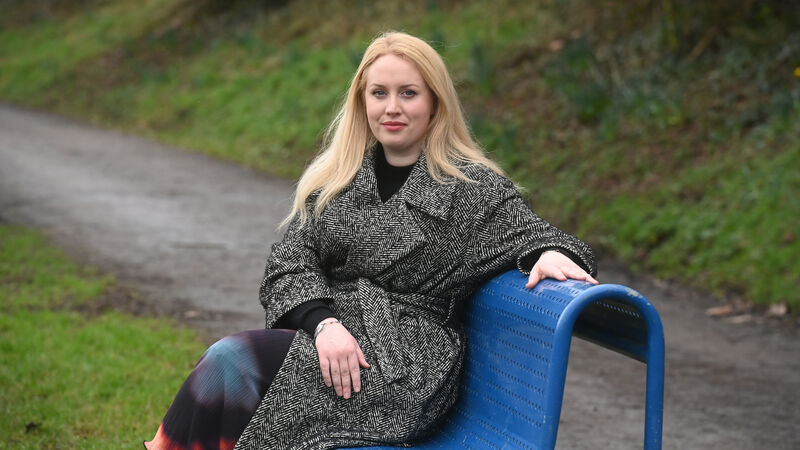
Julia Duff pictured at The Glen River Park, Cork. Picture: Larry Cummins
JULIA Duff was your typical, fun-loving teenager. She hung out with pals and generally enjoyed life - until she had her first tonic clonic seizure aged 15.
“That first tonic clonic seizure sparked off my diagnosis of epilepsy,” says Julia , now 34, from St Luke’s, Cork
Epilepsy is a neurological disorder which affects the brain. It is a tendency to have repeated seizures, and the trend can be long-term, but the seizures can be controlled, meaning that a person can have epilepsy but may not have active seizures.
Seizures can start in a part of the brain or happen in both sides of the brain at once.
Julia’s diagnosis was a life-changing moment.
“Yes, it had a huge impact on my life,” she says.
My social life was badly affected, and my teenage pals were at a loss to know what to do or say about my diagnosis.
“My mum, a single parent, was terrified that she couldn’t look after me properly. It was a huge learning curve for both of us. I was very unwell until I was prescribed medication. It takes a while for the right medications for epilepsy to be prescribed,” says Julia. “It is a matter of trial and error.”
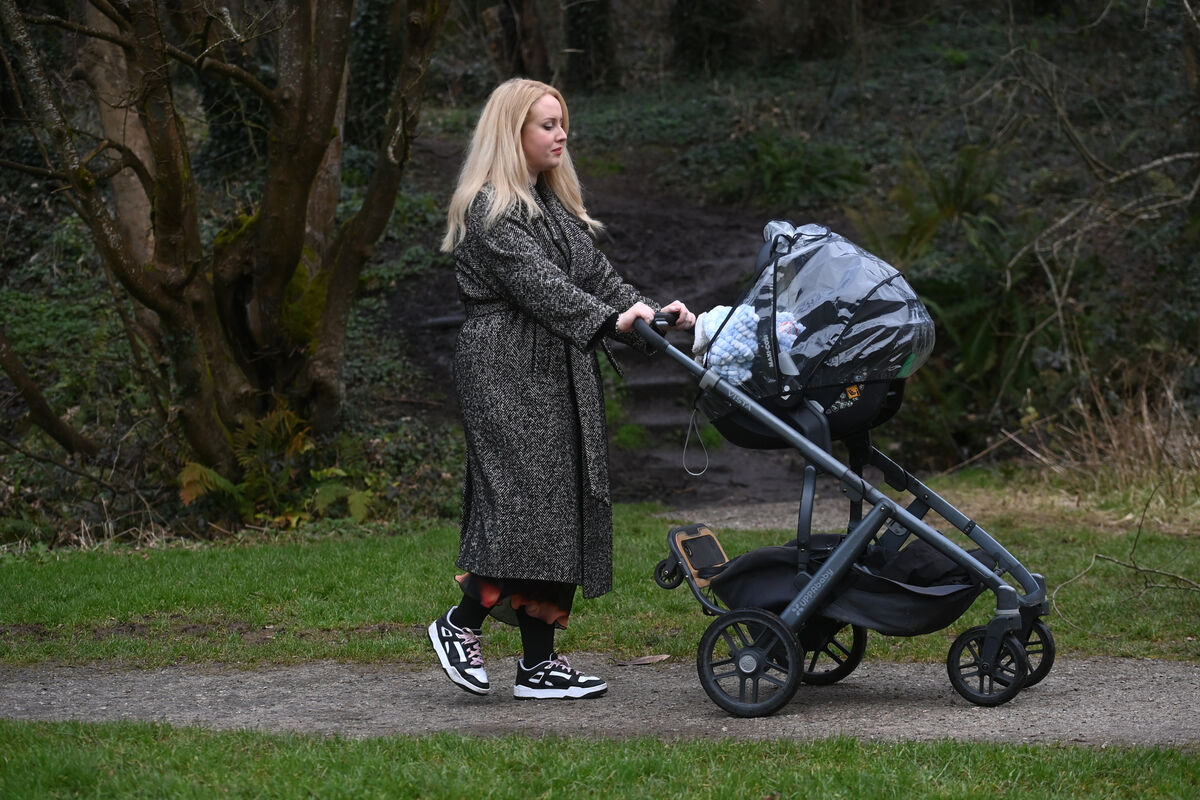
Having epilepsy is much more than having seizures. People with epilepsy and their families typically face an array of challenges to daily living that vary with the severity and nature of the disorder, and that may change as the individual gets older.
“Because of my type of epilepsy, it took a long time to get under control, says Julia.
“Dr Brian Sweeney, Neurologist, helped me get the condition under control, but it took almost 10 years to settle down. It was very worrying. I would have myoclonus watching TV, which caused quick, jerking movements in my limbs that I couldn’t control. I would jerk at random, which was embarrassing.”
She suffered a lot.
“I’d experience absence seizures that cause you to blank out or stare into space for a few seconds,” says Julia.
They can also be called petit mal seizures.
What was school like?
“I wasn’t an amazing student,” says Julia. “The meds I was taking were so heavy, I found it hard to focus and my memory wasn’t great.
I wasn’t aware a lot of the time of what was happening. When an absence seizure occurred, I wasn’t aware of it. I wasn’t excelling at school. I took the long way round!
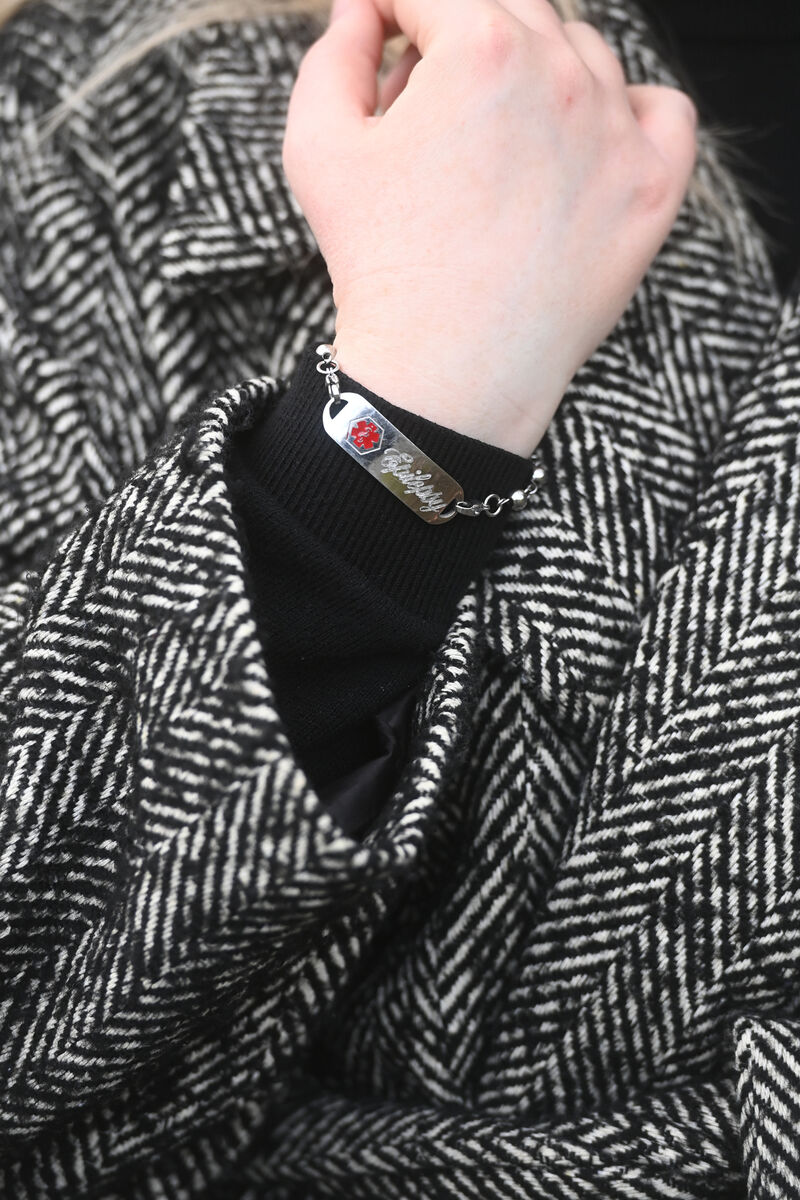
Julia became an amazing student and an amazing mother.
“I finally went to college in my 20s and graduated with a Masters in Business. I took the long route!”
Was her epilepsy under control then?
“It was mostly under control,” says Julia. “The seizures were intermittent. I felt there was a breakthrough and I tried to get on with life as a young adult.”
Julia was ambitious.
“I told my neurologist I had future plans for when I got older. I wanted to have children and I worried that the medications I was taking were safe.”
Julia had people in her corner.
“During the whole process of figuring things out, I had great people around me,” she says.
“They were so patient and caring. When my mind was cloudy and muddy, I could call on people for help. It took a good few people to manage the circumstances when I suffered a seizure. If I had a full seizure, I could be unconscious all day and in pain. I needed minding.
It took a while for people to understand that my memory was impaired. I was slower to get started in the morning.
Julia got a lot of help from her friends.
“People were so good to help me out,” says Julia. “They weren’t freaked out. Some people can be ignorant about epilepsy and feel that they can’t speak to me about it.”
People’s ignorance about the condition can be frightening for sufferers.
“Often,” says Julia, “people thought when someone was experiencing an epileptic episode that they should hold them down and stick a spoon in their mouths to prevent them from swallowing their tongue. Others think you should break the jaw or teeth.
“I am very forthcoming in telling people what to do in the event of my having a seizure. I volunteer the information.”
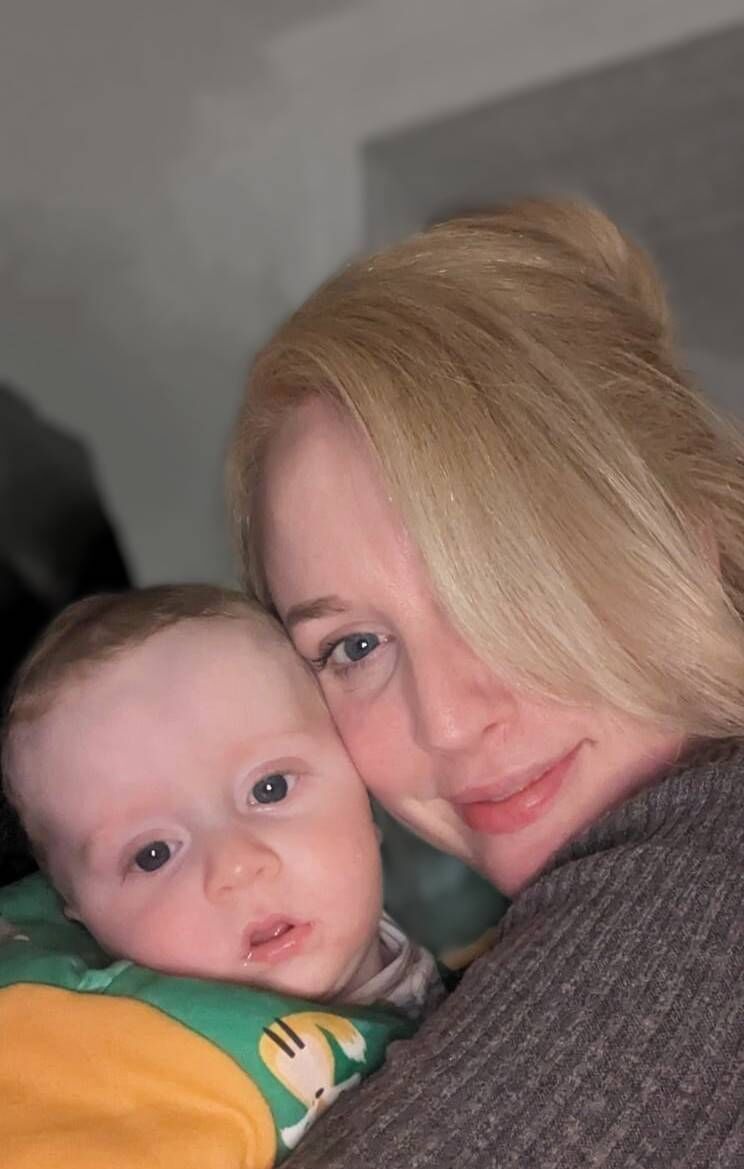
What information can she volunteer to us?
“If I suffer a seizure and hit my head, I could go into status epilepticus, which is defined as a seizure with five minutes or more of continuous clinical and/or electrographic seizure activity, or recurrent seizure activity without recovery between seizures - an ambulance should be called,” says Julia.
“The ambulance should arrive in minutes. If it is over five minutes the repercussions can cause brain damage.
Status epilepticus can be fatal if you don’t come out of the seizure.
Julia achieved her ambitions, going to college and becoming a mother.
“I checked that the drugs I was taking were safe during pregnancy,” she says.
How did she meet her partner, Bill?
“I met him through a friend in Cork city,” says Julia.
Bill wanted to know everything about her.
“He was very inquisitive,” says Julia. “He did his own research on epilepsy, so we’d be best equipped to deal with the condition. He is very caring.”
When Julia got pregnant in September, 2022, she was five years seizure-free.
“Then, at the end of my first trimester, I suffered a tonic clonic seizure,” says Julia.
Luckily, I was in bed and was unhurt and I got back on track.
She suffered another seizure, an absence seizure, when she was on the operating table about to undergo a caesarean section.
“It felt like I was not under control,” says Julia.
She felt the effects of the most recent seizures after Rían was born.
“People’s help then was a big deal,” says Julia. “Bill’s family, my family, all pitched in, and I was able to recover and recover my strength. For a few months after Rían was born it felt like the seizures I suffered before and after he was born seemed like a nightmare.”
The nightmare wasn’t over.
“I wasn’t allowed to be alone with Rían,” says Julia.
“For his safety, I wasn’t allowed to hold him.”
That must have been devastating for the new mother?
“It was very upsetting,” says Julia. “But we knew it was all for Rían’s safety.”
Talking to Julia, she tells me that for three months now, she has been seizure-free.
Life is different and life is good.
“Rían and I go for walks in the park,” she says. “We go to mothers’ and toddlers’ group. And we go swimming.”
Soon, Julia will return to work in UCC.
“Yes, I will return as soon as we sort out childcare for Rían,” says Julia.
She says people being newly diagnosed with epilepsy can find it hard.
“For younger people, it is harder to accept,” says Julia.
I would advise they tell people and not be ashamed. There can be a stigma around epilepsy; almost medieval misconceptions about it. I would rely on others to help out and to be reliable taking medications.
“People diagnosed with epilepsy might have to tweak their lifestyle, not drinking for example. That might be a struggle, but the struggle with maintaining good health is much more important. Looking cool in front of friends is not that important.”
Sourcing support resources is important.
“Epilepsy Ireland offers much information and support,” says Julia.
“Niamh in the community programme office in Cork is so nice and she texts me to check in with me every month.”
Julia is living her best life.
“Yes, I have epilepsy. But it doesn’t define me.”
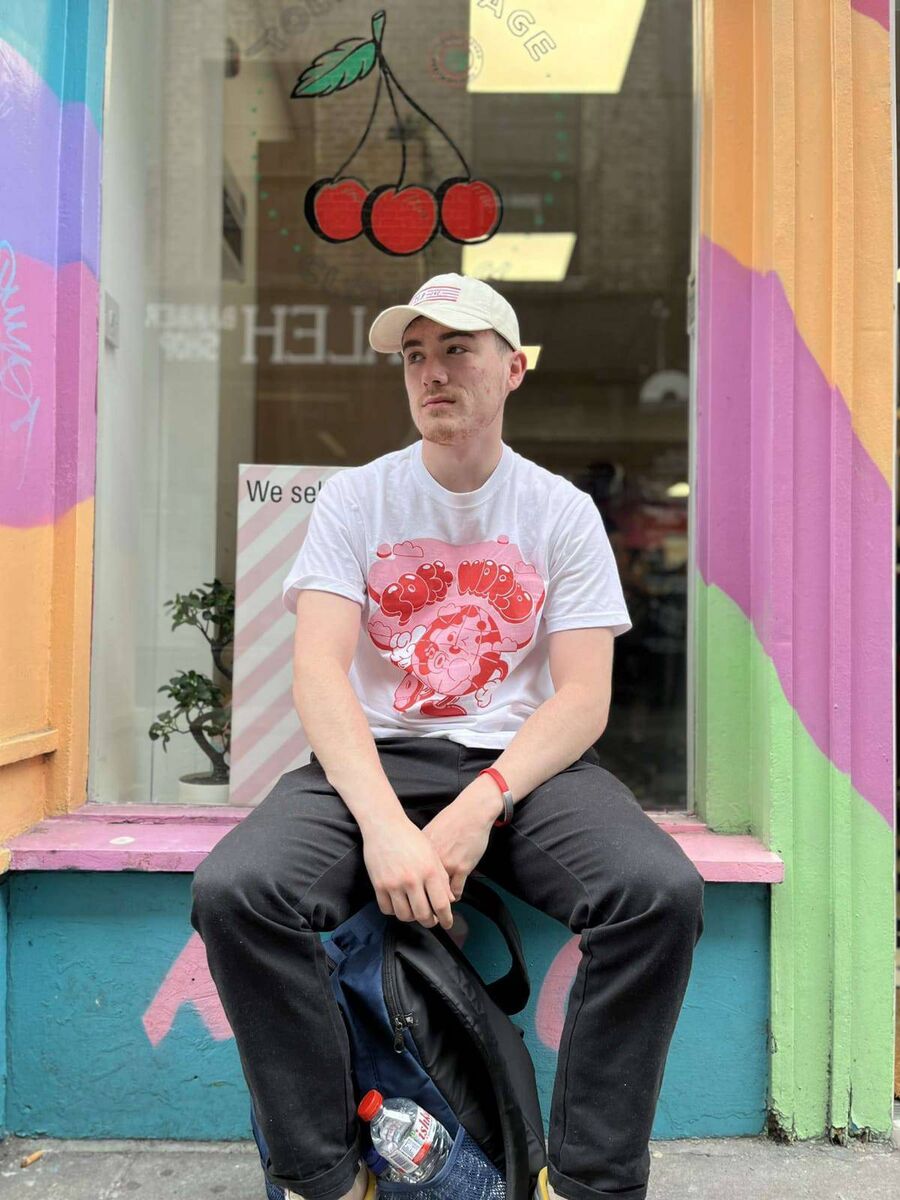
JACK’S STORY
Jack O’Connor, from Kerry, who lives in Turners Cross and works at Telus Mahon, experienced his first epileptic seizure at 17.
“It came totally out of the blue,” says Jack, now 23.
“It came a week before I was due to take my driving test and it was the day my friend and I went to UCC to see the campus.”
Jack remembers that fateful day.
“I waited outside the toilet for my friend, and he heard me collapse,” says Jack. “I had no idea what just happened.
“It was months after that I had another episode, in June, the summer of 2018.
I didn’t worry too much. I thought the episodes were one-offs, or initially I thought they might be caused by diabetes.
But they weren’t.
“Before I went to study in UCC, the episodes got worse and they badly affected me,” says Jack.
Fortunately, he had people looking out for him as he started a new college term, dealing with a new medical condition.
“My flat mates were great to me,” says Jack, whose episodes occur randomly and regularly. He had one recently.
“Just yesterday I had to come home from work and one of my housemates got a taxi for me.”
Jack very often doesn’t get any warning before he experiences an epileptic episode or an absence episode.
“I try not to out-think the condition,” he says.
"If I’m out late on a Thursday night, I wake up late on Friday.”
Once, he woke up in hospital.
“I didn’t fall,” recalls Jack, “but I zoned out, a kind lady guided me off the road. Everyone wanted to help. Strangers helped me. Strangers stayed with me. There is good in everyone.”
When he had a consultation with a neurologist, it was confirmed that he had epilepsy.
In Ireland, there are 45,000 individuals with epilepsy, 20% of whom are paediatric. Of 40,000 sufferers in Ireland,. only about 70% are well controlled on medication.
What did Jack fear most when he was diagnosed with epilepsy?
“I feared for my independence,” he says.
I feared that I couldn’t do my own thing in the big, bad world.
He was in denial.
“For a long while I refused to acknowledge it,” he says. “ I didn’t take the best care of myself. I
“needed to figure out what type of epilepsy it was and what kind of medication I needed. I discovered that I didn’t have tonic clonic epilepsy, I had focal epilepsy arising from a specific part of the brain and I had absence seizures causing a sudden lapse of consciousness.”
How was Jack’s life impacted after he was diagnosed with epilepsy?
“I missed out on college every few weeks,” he says. “At times I couldn’t attend lectures. I didn’t trust myself on the bus.”
He was more careful.
“My social life was more measured,” says Jack.
His friends were there for him.
“My core group of friends were OK with it,” says Jack.
“They made jokes at the start which was sometimes tough to deal with. Others seemed to look at me different.”
His mindset was different.
“Epilepsy was always at the back of my mind. I suffered from anxiety and the epilepsy compounded that.
Sometimes, I can put myself at ease, more so these days. People are so nice and willing to help.
What’s the worst thing about having epilepsy?
“The physical experience is so horrible,” says Jack. “You can feel like sh-t in a moment.”
Are there any warning signs before having an episode?
“I try and look out for them,” says Jack. “I began to recognise the warning signs like getting fidgety. Your cognitive skills fail a bit.”
What does having an episode feel like?
“10 or 15 minutes before having an episode, you feel very intense,” says Jack.
“You feel a sense of deja-vu. Like consciousness is above you. It can be like an out of body experience – I’m like a third person looking down on myself.”
Sometimes, there are no warnings.
“I often wake up in bed having no idea what happened,” says Jack.
Often, I don’t feel anything happening before a seizure. I can suffer concussion after having a seizure.
How does his family feel about Jack’s diagnosis?
“My little brother doesn’t realise how serious epilepsy is,” says Jack. “My dad is mindful of it and my mum joined a support group which helped her a lot.”
Jack and Paddy liaise regularly.
“Paddy McGeoghegan, Advocacy and Communication manager, Epilepsy Ireland, has provided me with great support and information,” says Jack.
“Young people who are diagnosed with epilepsy can get great help from Epilepsy Ireland.”
Jack takes Lamictal, an anti-epileptic medication and Vimpat for partial onset seizures.
“I have to remember to take my meds,” says Jack.
“Sometimes my memory loss is so big I don’t bother learning people’s names.”
Jack doesn’t dwell on his condition.
“I try not to think about it too much,” he says.
“If I did think about it too much, I’d spend half my time in fear of myself. Some days I can deal with it better than other days.”
Jack started a new job too.
“The change of sleep habits getting up earlier in the morning goosed me at first,” he admits.
“And I had to go home from work a number of times.”
That didn’t sit well with him.
“I don’t like being less of a reliable employee.”
But Jack is never alone.
“People are so helpful, they don’t see epilepsy as something terrible.”
Jack is a positive person too.
“I’m optimistic with support systems in place, with a support network around me. I always feel I have people to fall back on. I have a running start at this. I’m pretty happy. But things can change in an instant.”
International Epilepsy Day is on February 12.
Epilepsy affects 45,000 people in Ireland, making it one of the most common neurological disorders.
Epilepsy Ireland is based in Dublin. The office can be contacted by calling 01-4557500- 9am to 5pm.
To contact the Cork branch, call Niamh Jones, South Lee and West Cork: 0858766628.
Email:info@epilepsy.ie
Advocacy and Communication manager, Epilepsy Ireland Paddy McGeoghegan is on 085-8014451.
If a person has a seizure, the first thing you should do is time it. After five minutes call an ambulance. Keep the person safe during the seizure. Never put anything in a person’s mouth or restrain them during a seizure. Stay with the person. It really is as simple as Time, Safe, Stay.
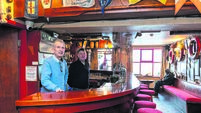






 App?
App?


